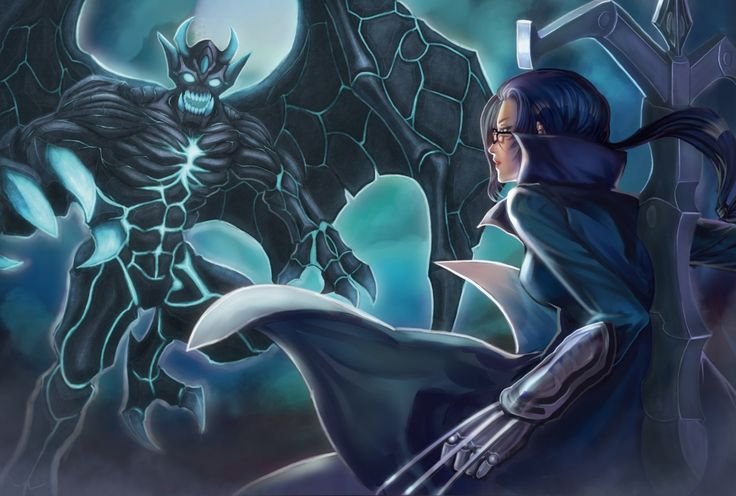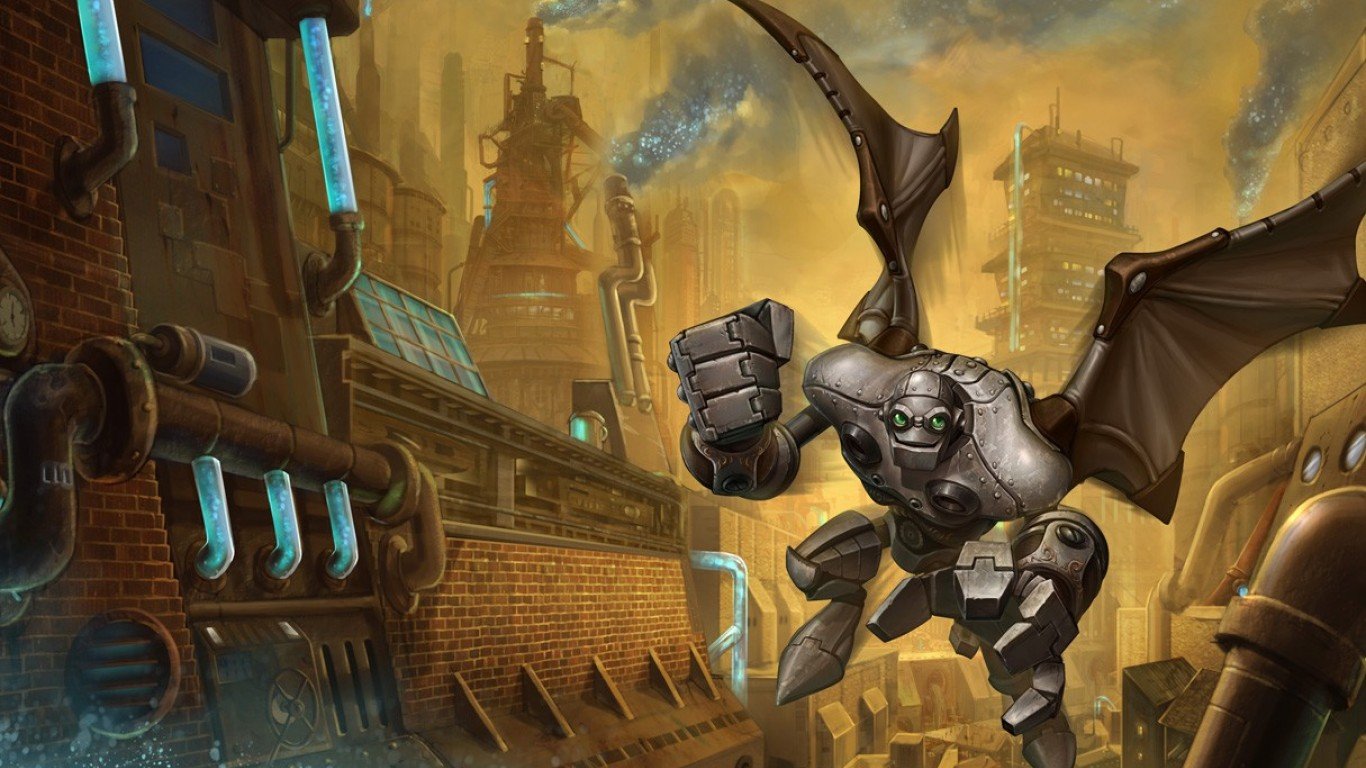
Lore
 Galio
GalioLong before the League’s regulation of such magic, mages experimented with the creation of artificial life. Now forbidden, instilling golems with reason was once not so uncommon a practice amongst the more expert of craftsmen. One such visionary was the Demacian artificer, Durand. Peerless at crafting sentient beings, Durand’s constructs served as tireless guardians for the border towns of his beloved city-state, affording them protection from their Noxian neighbors. For his own defense, however, Durand kept his magnum opus: Galio. This mighty construct – forged in the image of a gargoyle – kept him safe on his journeys, allowing him to perform his important work without fear of reprisal from those hostile to his homeland. That is, until dealing with his taxing sentinels finally roused the ire of the Noxian High Command.
As Durand crossed the Howling Marsh with his masterwork in tow, he was set upon by Noxian assassins in force. Outnumbered and overwhelmed, Galio looked on in horror as the murderers cut down his charge, executing him swiftly before vanishing back into the mists. Stripped of his reason for being, Galio despaired. For years he remained in solitude, standing vigil over the bones of the master he had failed to protect… a literal monument to his own everlasting shame. Then, one nondescript day, a sad but determined yordle girl carrying a mighty Demacian crown stopped in the shadow of a great statue to rest. Hidden in plain sight from his unsuspecting visitor, Galio studied the forlorn yordle. She looked as though she too shouldered a tremendous burden. As quietly and as stoically as she had arrived, she departed in the direction of Demacia. This encounter lit a spark in Galio’s eye. Remembering the cause that his master had died defending, Galio arose from his silent purgatory and followed in the wake of this brave creature. He had a new reason to live: to join the League of Legends and fight for the will of Demacia.
“There is no such thing as redemption. Only penance.”
— Galio






